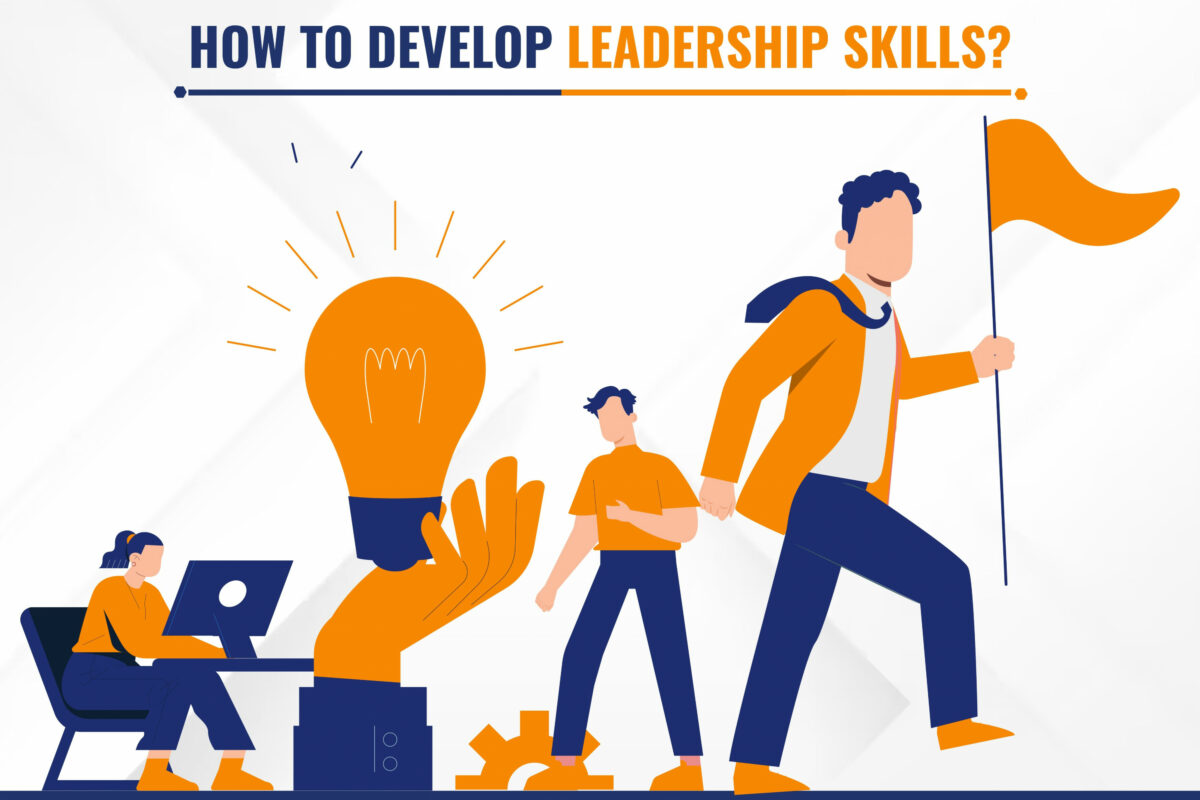Developing leadership skills is a lifelong journey that involves self-awareness, continuous learning, and practical application. Whether you’re aspiring to lead a team, manage a business, or make a positive impact in your community, honing your leadership skills is essential for success. Effective leadership is not only about inspiring and motivating others but also about fostering collaboration, making sound decisions, and achieving collective goals. In this comprehensive guide, we’ll explore strategies, techniques, and best practices for developing leadership skills, regardless of your current level of experience or expertise.
Understanding Leadership:
Leadership is the ability to influence and guide others towards a common goal or vision. It involves a combination of traits, behaviors, and competencies that enable individuals to inspire, motivate, and empower others. Effective leaders possess a diverse range of skills, including communication, emotional intelligence, problem-solving, decision-making, and resilience. Leadership is not limited to formal roles or titles; anyone can develop and demonstrate leadership qualities in various contexts, including the workplace, community, and personal life.
Key Leadership Skills:
- Communication: Effective leaders communicate clearly, openly, and persuasively. They listen actively, articulate their ideas effectively, and adapt their communication style to different audiences and situations.
- Emotional Intelligence: Leaders with high emotional intelligence are self-aware, empathetic, and socially skilled. They understand their own emotions and those of others, manage relationships effectively, and navigate interpersonal dynamics with ease.
- Vision and Strategic Thinking: Strong leaders have a clear vision for the future and the ability to think strategically. They set ambitious yet achievable goals, develop strategic plans, and inspire others to work towards a shared vision.
- Decision-Making: Leaders make informed decisions based on sound judgment, critical thinking, and analysis of available information. They weigh the pros and cons, consider alternative solutions, and take calculated risks when necessary.
- Collaboration and Teamwork: Effective leaders foster a culture of collaboration, trust, and teamwork. They build strong relationships, empower team members, and leverage collective strengths to achieve common goals.
- Adaptability and Resilience: Leaders adapt to change, embrace uncertainty, and bounce back from setbacks with resilience. They remain flexible, open-minded, and optimistic in the face of challenges and adversity.
- Influence and Persuasion: Leaders influence and persuade others through inspiration, persuasion, and negotiation. They build credibility, communicate persuasively, and inspire action through their words and actions.
Strategies for Developing Leadership Skills:
- Self-Reflection and Assessment: Take time to reflect on your strengths, weaknesses, values, and leadership style. Seek feedback from others and assess your performance objectively to identify areas for growth and improvement.
- Continuous Learning: Commit to lifelong learning and personal development. Attend workshops, seminars, and training programs to acquire new skills, knowledge, and perspectives. Read books, articles, and case studies on leadership and related topics.
- Practice and Application: Apply leadership skills in real-life situations to gain practical experience and build confidence. Take on leadership roles and responsibilities in your workplace, community, or extracurricular activities. Volunteer for leadership opportunities and projects that stretch your abilities.
- Seek Mentorship and Coaching: Find mentors and coaches who can provide guidance, support, and feedback on your leadership journey. Learn from experienced leaders, seek advice, and leverage their wisdom and expertise to accelerate your growth.
- Develop Emotional Intelligence: Enhance your emotional intelligence by practicing self-awareness, self-regulation, empathy, and social skills. Pay attention to your emotions, manage stress effectively, and cultivate empathy and understanding towards others.
- Set Goals and Action Plans: Set clear, measurable goals for your leadership development and create action plans to achieve them. Break down larger goals into smaller, achievable milestones and track your progress over time.
- Lead by Example: Lead by example and demonstrate leadership qualities in your daily actions and interactions. Show integrity, authenticity, and accountability in everything you do. Be a role model for others to emulate.
- Solicit Feedback and Learn from Experience: Solicit feedback from peers, colleagues, and team members on your leadership performance. Listen to their perspectives, learn from their insights, and use feedback to adjust your approach and improve continuously.
Conclusion:
Developing leadership skills is a journey of self-discovery, growth, and transformation. By cultivating key leadership competencies, embracing continuous learning, and practicing effective leadership behaviors, individuals can become more influential, impactful, and successful leaders. Whether you’re leading a team, managing a project, or driving change in your organization, investing in your leadership development is essential for personal and professional growth. By following the strategies, techniques, and best practices outlined in this guide, you can unlock your leadership potential and make a positive difference in the lives of others. Remember that leadership is not just about position or authority; it’s about inspiring others to achieve greatness and realizing your full potential as a leader.
